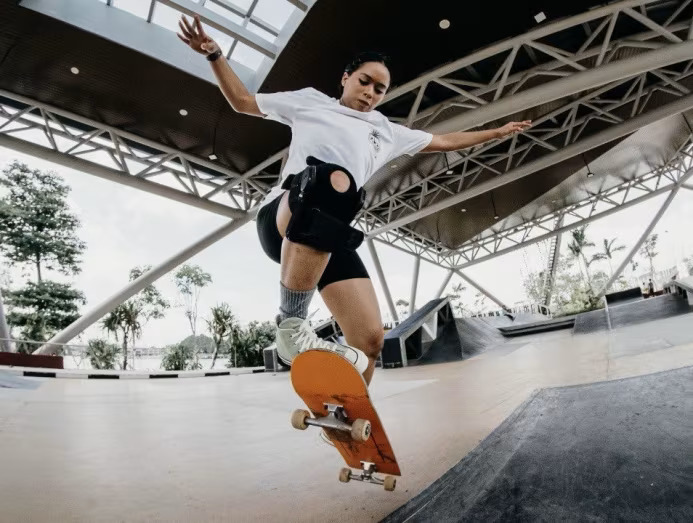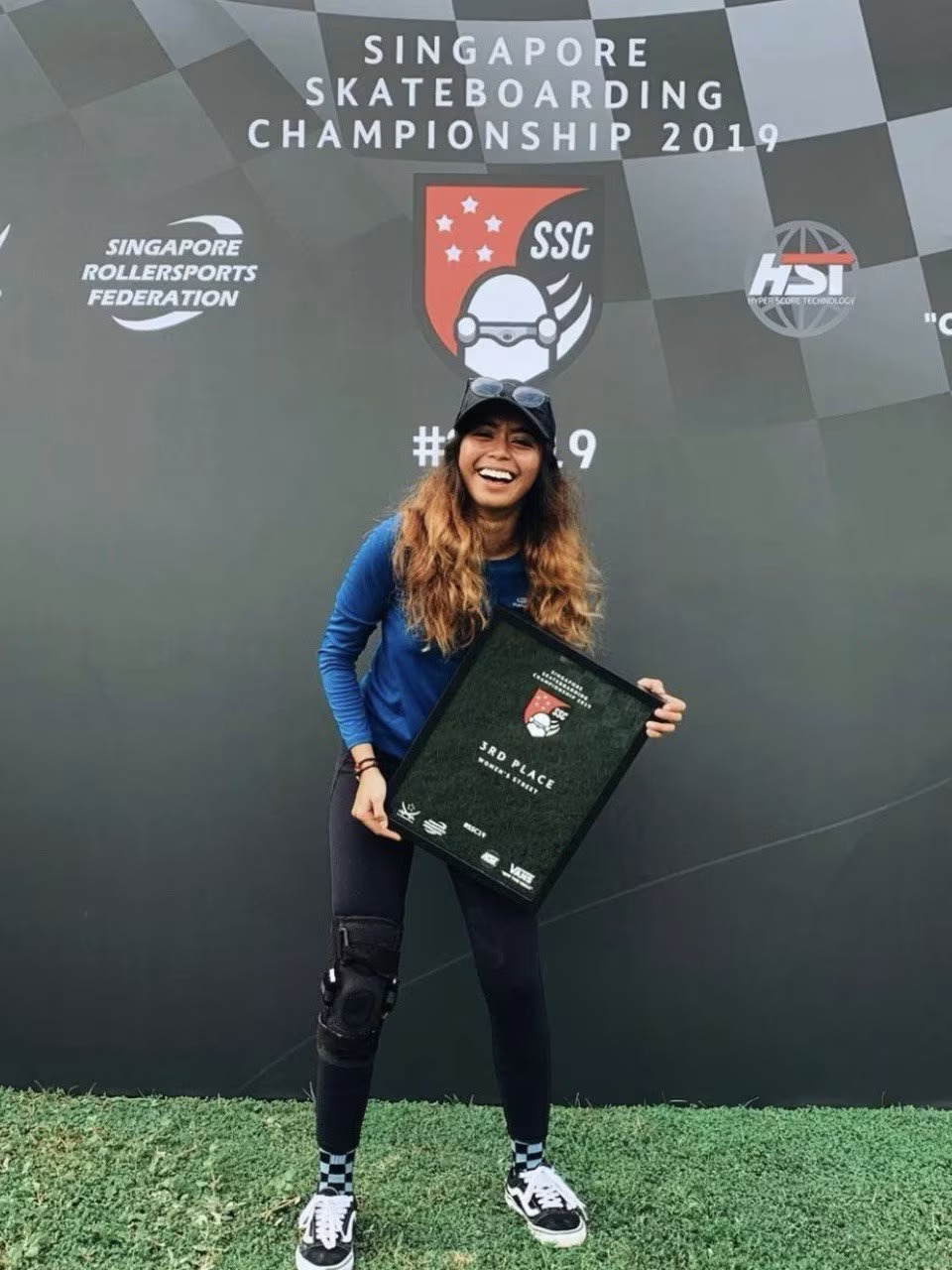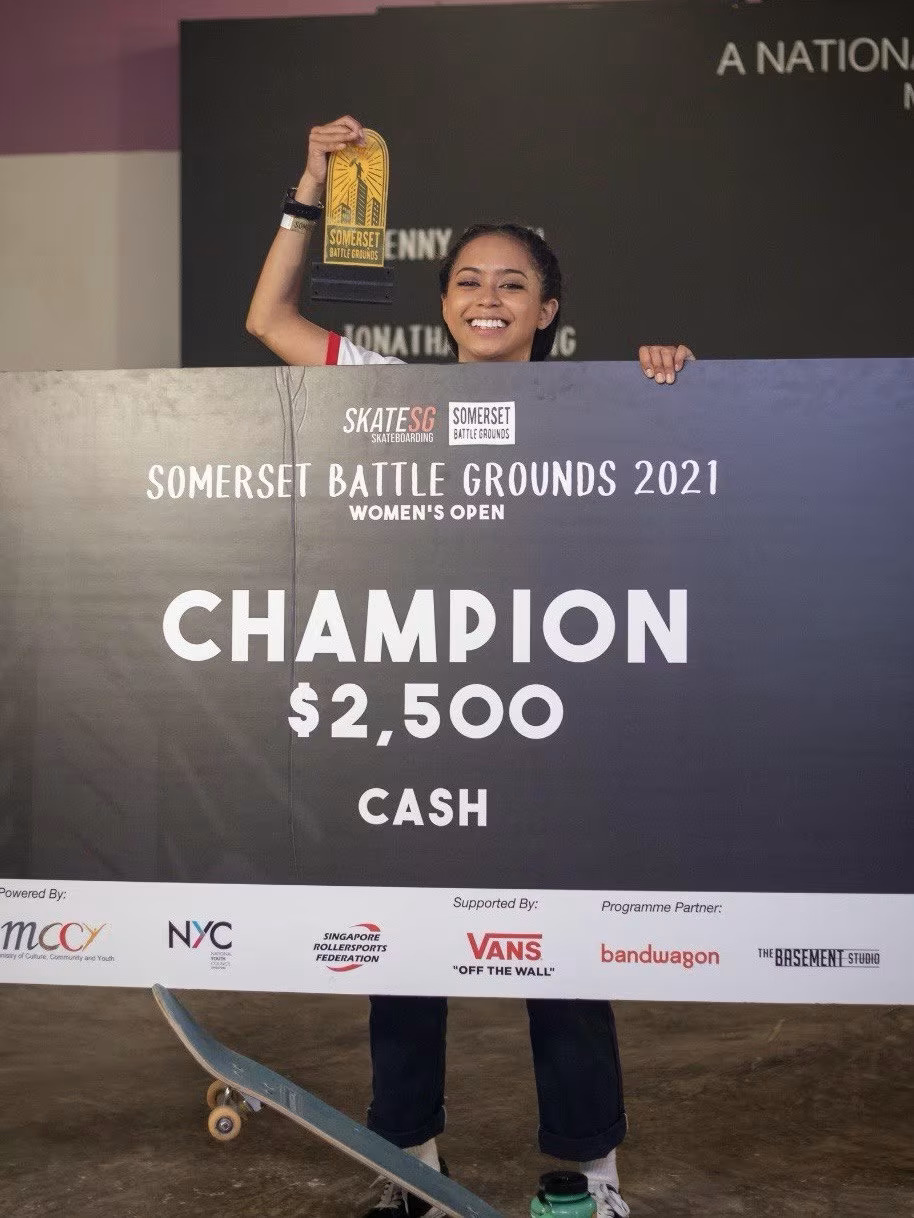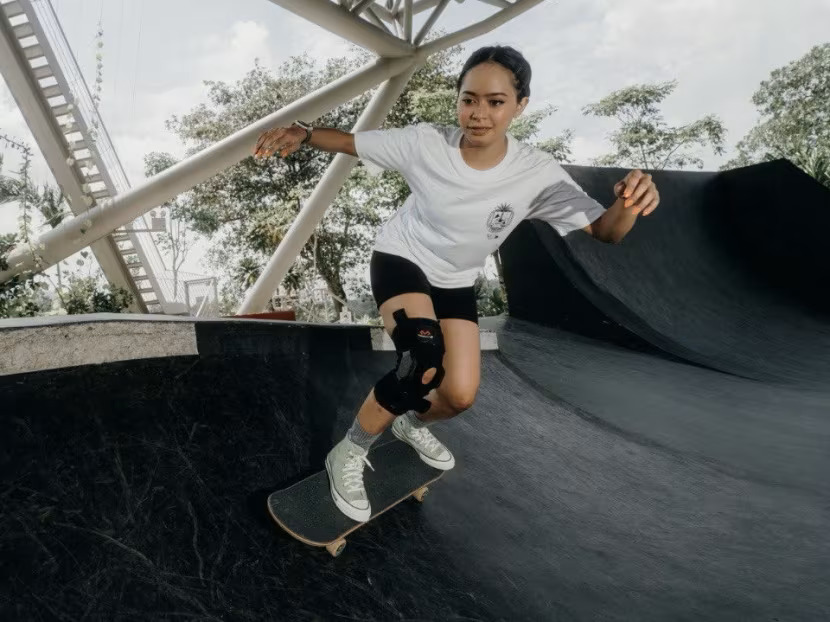SINGAPORE (CNA) – During her teenage years, skateboarder Arina Azain vividly recalls an encounter with the police while practising tricks with her friends at a basketball court.
The authorities intervened, citing noise complaints likely from nearby residents.
Additionally, her own mother cautioned her about skateboarding, attributing it to gathering “druggies and bad kids.” Disputing these misconceptions, Arina found solace and camaraderie within the skateboarding community.
Even though skateboarding officially became an Olympic sport in the 2020 Summer Olympics, which was held in Tokyo in 2021 due to COVID-19, it has always been viewed differently from other sports like tennis, gymnastics or fencing.
First conceived around the 1940s or 1950s as a way for surfers to practise on land, skateboarding has a reputation for attracting the renegade crowd – the youth subculture is strongly associated with individuality, self-expression, and often, rebellion.
As a result, the skateboarding community did not always have a good standing within the wider community.
But perhaps precisely because of this, Arina identified strongly with this misunderstood group. She was then an unhappy teenager who felt like “a misfit in the world of norms”.
“I was brought up by separated parents and wasn’t close to my family. When I was a kid, I felt abandoned,” the 27-year-old said.
She quickly found her tribe amongst the Singapore skateboarding community and spent her days cruising around skateparks and practising tricks.
Arina went on to win multiple competitions and was even invited to represent Singapore in the SEA games in 2019, although she declined. Last year, she was selected as one of five creatives to represent Singapore in the #CreateNext: Converse All Stars Campaign, which celebrates talents in diverse sports and arts.
But for Arina, the significance of skateboarding goes beyond trophies.
“Before skateboarding, I was mixing with the wrong company – kids who were very naughty,” she said.
It was skateboarding that gave her a supportive community and a compass to navigate her tumultuous teenage years. “I think skateboarding saved me,” she said.

SKATEBOARDING AS THERAPY
Arina was around 12 when she first came across skateboarders at the void deck below her flat. “They were doing a lot of flips and it looked so cool. So I asked a skateboarder if I could try,” she laughed.
He said yes and she got on the skateboard. There was an instant connection.
“It was very natural for me to get on the board. Some of my friends stepped on and fell. But I didn’t. I could balance without any training or experience,” she recalled.
Arina wanted to get her own skateboard but her parents said no.
“My family did not like me skateboarding. They felt that it is a guy’s sport. Some said, ‘You are a girl, you should stay at home, cook, clean the house, be a lady’,” she recalled.
Undeterred, she skipped eating during recess for months to save up for her first skateboard. It cost her S$90, a lot of money for a young girl back then.
As she moved into her teenage years, skateboarding became her defining passion. Her family objected, but she hid her skateboard and went anyway.
“At first, I’d just cruise around on the skateboard with an earpiece. It was time on my own – just me and myself. Skateboarding became therapy for me – a way to be away from problems at home for a while so that I could get myself together.”
Arina spent all her time skating, often staying out late with her board. Sometimes, she would miss the last bus home and take the first bus home the next morning, and head straight to school.

FINDING HER TRIBE
At skateparks, Arina was usually the only girl, or one of two girls among 30 male skateboarders. But she did not feel out of place.
“We have a handshake that all skaters know – it’s a handshake and fist bump. When we see another skater, we give the skater handshake. You feel welcome and you become instant friends.”
The first skateboarding trick she mastered was the kickflip, where you pop your skateboard up into the air and use your foot to flip the board 360-degrees before landing on it. “That’s the first trick that everyone has to master in order to learn harder tricks. It took me months to master it,” she said.
From there, Arina mastered more difficult harder tricks, such as the Fakie Big Flip, where the skateboarder moves backwards while executing a kickflip with a 360-degree spin of the board; and the Hardflip, where the board flips and spins beneath the skateboarder’s feet.
“These are harder tricks, and I had to try many times to master them. But whenever I land a trick, I feel complete. And whenever I land, there are always groups of people cheering for me,” she said.
This acceptance and support, said Arina, is a big part of skateboarding culture.
“Every skatepark I went to, I felt supported. Even though I don’t know the fellas, they would say, ‘Hey, you can do this.’ And then they would share with me tips on how to master the tricks.
“Unlike other sports where people are more competitive, in skateboarding, we always help each other to take another step and do a harder trick,” she said.
“It felt amazing that no matter where I went, there would always be people supporting me. Here, I felt seen,” she said.
Arina went on to win numerous awards, including third place at the 2019 Singapore Skateboarding Championship in the Women’s Street category. She was also selected to take part in the 2019 SEA Games, but she opted out because she felt she was not ready for the competition.
In 2021, she won the Game of Skate at the Somerset Battle Grounds, where skateboarders attempt to perform each other’s tricks until one final skateboarder remains – and wins the competition.

NAVIGATING LIFE ON A SKATEBOARD
At 27, Arina has left her rebellious phase behind.
She has also mended relationships with her family, who, in 2020, finally supported her passion for skateboarding.
“I told my family skateboarding is a sport. It’s not something bad. The first time my parents watched me skate was during COVID-19 when it was livestreamed,” she laughed.
She is currently a train captain, operating trains at SMRT, something she describes as part of “adulting”. In fact, she was so busy with work that when Converse All Stars invited her to be part of their global collective of emerging talent in June 2023, she had not been skateboarding for a year.
As part of the streetwear brand’s #CreateNext campaign, Arina was invited to customise her own shoes during an in-store event and connect with other creatives in the campaign. She was also involved in filming and shooting for content for Converse Singapore’s social media.
This unexpected invitation re-connected her with her passion for skateboarding.
“If they didn’t call me for the filming, I might not have started skateboarding again. Because of the campaign, I got new boards and fixed my own skateboard a few hours before filming,” she said.
Leaving competitive skateboarding behind, she now skates for leisure, casually cruising in her neighbourhood and doing a couple of tricks at the basketball court in her free time.
“I have a lot of flashbacks when I skate. I have memories of how carefree I felt as a kid here,” she said.
After navigating her difficult teenage years and coming of age at the skatepark, Arina said the most important lesson she learned from her adolescent years is: “Never be afraid to try something new. If you never try, you never know. I have no idea what I would be if I had not found skateboarding.”
Her advice for others: “Don’t be bothered or demoralised by what other people tell you. Do what’s best for you. You will find your place somewhere.”




















































